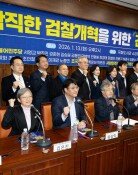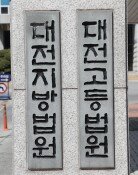Voters Show Conservative Swing After 2004
Voters Show Conservative Swing After 2004
Posted May. 12, 2010 13:47,
The average approval rating of the conservative Grand National Party was 46 percent, 6.3 percentage points higher than that of the liberal Democratic Party in the Seoul metropolitan region in the last nine national elections.
From the 1997 presidential election to the 2008 general elections, the Grand National Partys approval rating was 44.1 percent and the Democratic Partys 37.8 percent, according to the results of a study released Tuesday.
The Dong-A Ilbo and Dr. Park Won-ho, a political science professor at the University of Florida, analyzed the approval ratings in the presidential, general and local elections held over the period. The survey polled the capital regions 670 townships, including 223 in Seoul, 371 in Gyeonggi Province, and 76 in Incheon.
Analysts said the Grand National Party had a relatively higher approval rating in the polls, which reflects the conservative swing of voter sentiment in the Seoul metropolitan region partially because of redevelopment projects and objections to the policies of the liberal Kim Dae-jung and Roh Moo-hyun administrations.
The Grand National Party enjoyed higher approval ratings in 578 townships (86.3 percent), while the Democratic Party led in 92 areas (13.7 percent). The formers average approval in the region was 38.3 percent in the 1997 presidential election, but jumped to 51.5 percent in the 2008 general elections. In contrast, the Democratic Partys approval rate declined from 42 percent to 31.6 percent over the same period.
Notably, the Grand National Partys approval rating in the Seoul metropolitan region had been on par with or lower than its national average approval up until the 2002 presidential election. Its approval rating in the capital area started to exceed its national average from the 2004 general elections, however. Thus, the partys approval rating in the region (51.5 percent) rose 9.2 percentage points from its national average (42.3 percent) in the 2008 general elections.
In polls conducted in the final year of an administration, the ruling partys approval rating tended to lag behind that of the opposition party. The National Congress for New Politics, the ruling party in the early years of the Kim Dae-jung administration, had an approval rating of 42.3 percent in the Seoul metropolitan region in the 1998 local elections, but its successor Democratic Party won just 37.9 percent of the vote in the 2002 local elections.
The Democratic Party won as much as 51.1 percent of the vote in the 2004 general elections, which were held in the second year of the Roh Moo-hyun administration, but its approval rating plunged to 34.3 percent in the 2006 local elections.
sunshade@donga.com hjkwon@donga.com




![“배달 시키면 버렸는데”…피자 가운데 ‘그것’ 200% 활용 꿀팁 [알쓸톡]](https://dimg.donga.com/c/138/175/90/1/wps/NEWS/IMAGE/2026/01/07/133111146.3.png)


